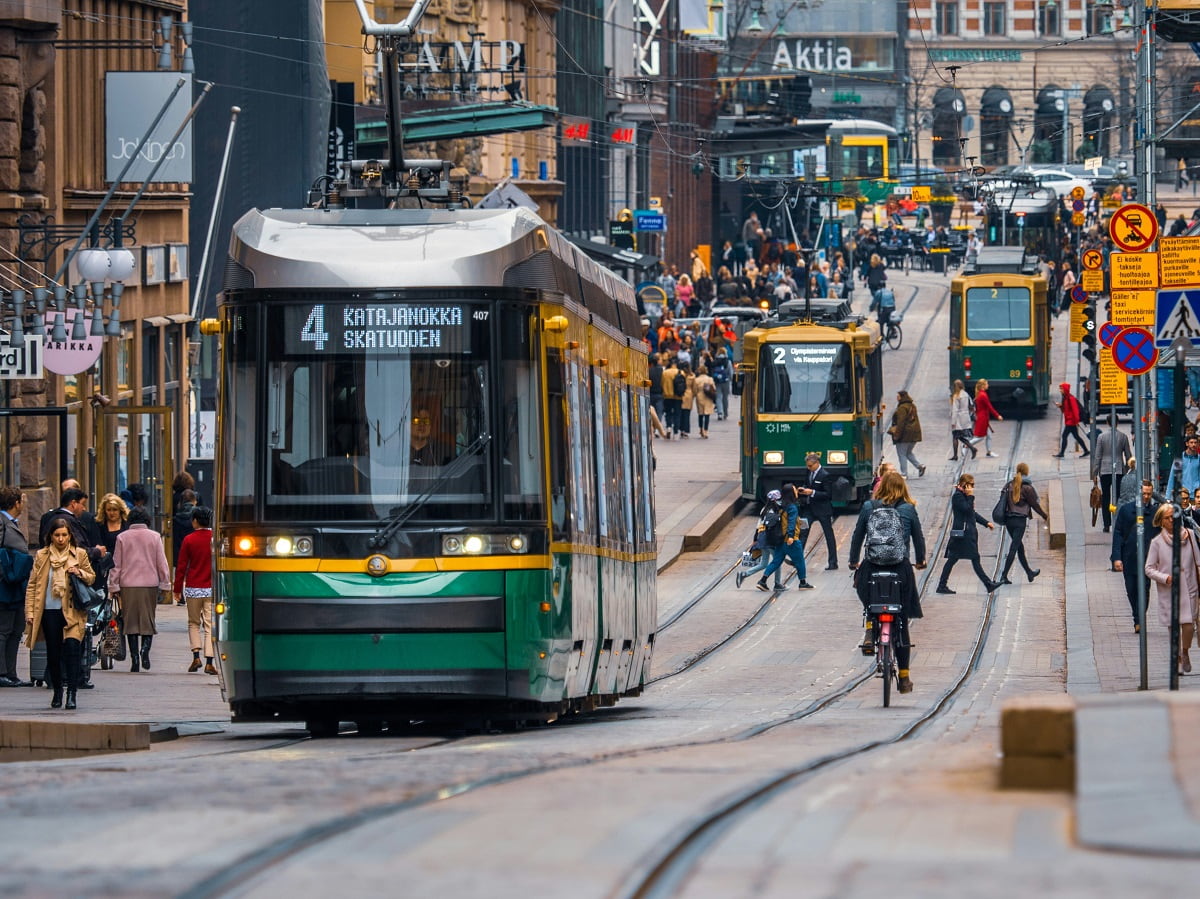The theme of this year’s Helsinki Security Forum was Towards a Total Defence of Europe. Drawn from Finland’s own doctrine of defence – which the president, Alexander Stubb, corrected to “comprehensive defence” – it incorporates social resilience and civil preparedness into its security apparatus. The not-too-subtle signal is that Finland takes its defence incredibly seriously, and given current conditions on the continent, the rest of Europe should do likewise.
Although Australia is far from the front line of any hot war, recently Canberra has promoted an approach to security and foreign policy that, in theory at least, attempts to embody similar principles. Government rhetoric has included phrases such as “whole-of-government”, “whole-of-nation”, and using “all tools of statecraft” in the hope of developing a more effective approach to advancing Australia’s interests.
Sharing a long border with a belligerent state means that it is in a permanent mode of heightened awareness.
However, moving this approach to security and foreign policy out of abstract concepts and rhetorical devices into Finnish-style practicalities may be more difficult than the government anticipates. What may be required is a cultural shift that Australia isn’t attuned for.
Finland is a nation of preppers. Sharing a long border with a belligerent state means that it is in a permanent state of heightened awareness. This awareness motivates the country to develop plans for every foreseeable scenario. Each element of the country – from government and the private sector to civil society groups and individual citizens – is tasked with a role to play.
With a strong focus on the security of supply, critical sectors all have mandated contingencies to maintain vital infrastructure, the supply of energy, food and pharmaceuticals, and the country’s financial capabilities. Four times a year, politicians, business leaders and civil society organisations meet for crisis simulations.

Public facilities such as car parks, metro stations, swimming pools and ice rinks double as bunkers and evacuation shelters. These facilities are connected to a series of tunnels that traverse subterranean Helsinki, which also allow the Finns to move military equipment undetected. Civil defence shelters are requirements of the country’s building code – and Finland currently has bunkers that can accommodate 4.8 million people (close to 90 per cent of the population).
Finland also has mandatory military service for all men at age 18. This includes a minimum of six months of basic training – more depending on the designated role for each individual. Following this training, each man is placed in a reserve unit until they are 50 years old, or 60 for those of a higher rank. Throughout these years, men are obligated to undertake refresher exercises of at least 40 days to maintain their skills. National service is voluntary for women, but a record number are participating since Russia’s invasion of Ukraine. In total, close to one-third of Finland's population can be called upon at short notice.
Alongside manpower, Finland’s national service also instils a strong public sense of duty and responsibility, built on individual recognition of the stakes. It has developed a culture where personal integrity is important, good faith is intrinsic, and service is not scoffed at. The country’s national character – embodied by the term sisu – is one of stoic determination and an action-oriented mindset. It is no coincidence that the Finns consistently rank as the world’s happiest people.
Australia coasts on its natural security advantages, and a culture of complacency has flowed from this.
National service may be a political non-starter in Australia – even with the country’s shortfall of defence personnel – but it is clearly a core feature of Finland’s cohesive sense of purpose. It also plays a vital role in enhancing the country’s psychological resilience, one of Finland’s seven vital functions for society. This is the ability to withstand the pressures of crises, which is coupled with an education system that works to create a citizenry with an immunity to malign information and the manipulative tactics of nefarious forces.
Here Australia could take greater cues from Finland. The Finns, along with the Swedes, are at the forefront of this psychological defence, building public capabilities to detect and resist information warfare that attempts to take advantage of the openness of liberal democracy in order to undermine it.
Australia has been edging towards a similar understanding of its own security. The recent National Defence Strategy widened the concept of national defence to not only the protection of the country’s borders but to the protection of its way of life. This is a recognition that the country’s prosperity, its values, political structures, and social cohesion are all innate to its security.
While the government may have sharpened its recognition of these threats, a “whole-of-nation” approach to this broader concept of security still requires greater substance and conviction. Australia coasts on its natural security advantages, and a culture of complacency has flowed from this. There’s a reluctance to ask what Australians can do for their country. Or a fear of having few takers.
Finns consider being a Finnish citizen a compact that one must commit to and tend to. While this may seem illiberal to some in Australia, the Finns have understood that liberal democracy doesn’t defend itself. Liberalism is not freedom from responsibility, it is the freedom to be responsible.

